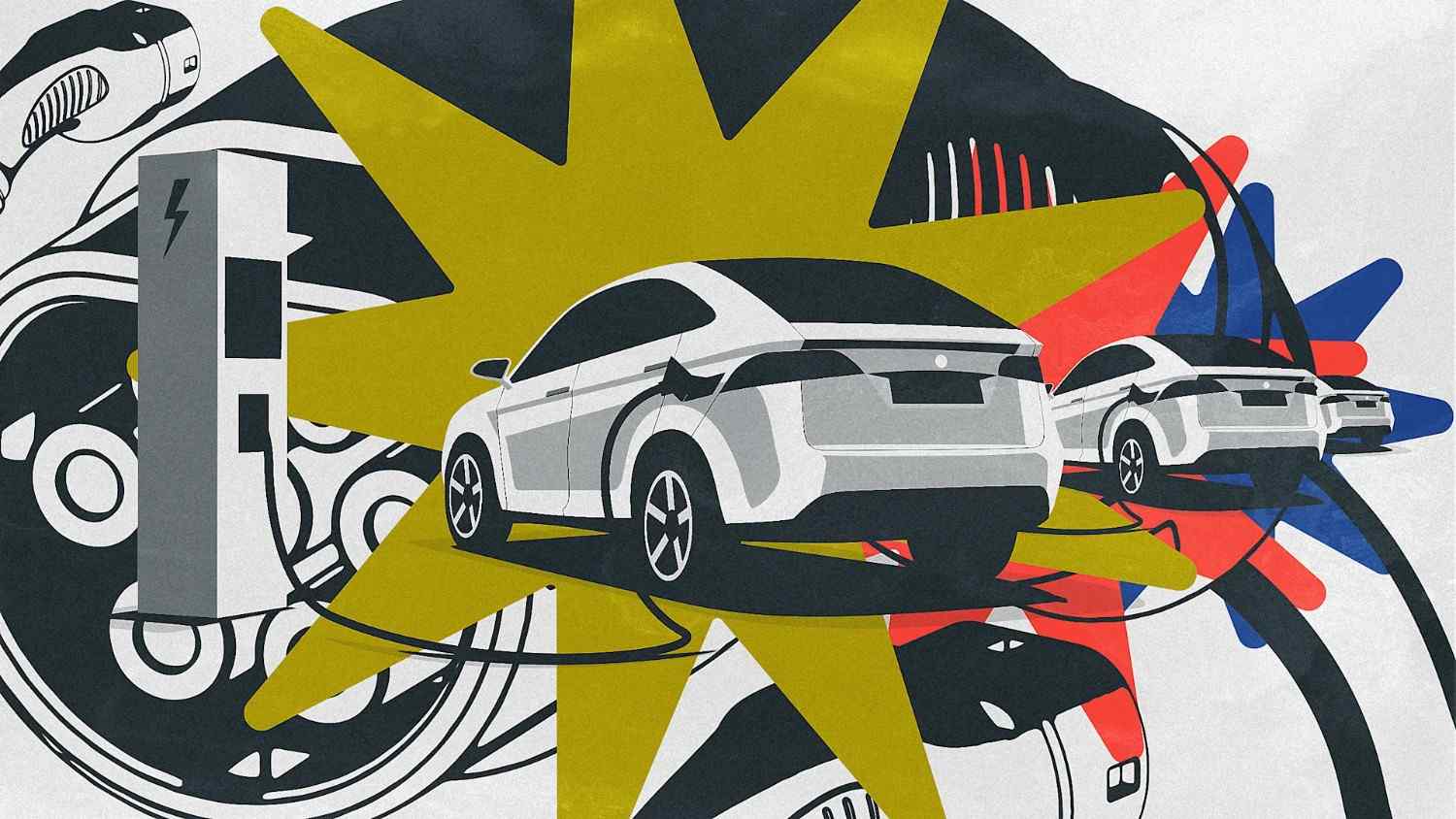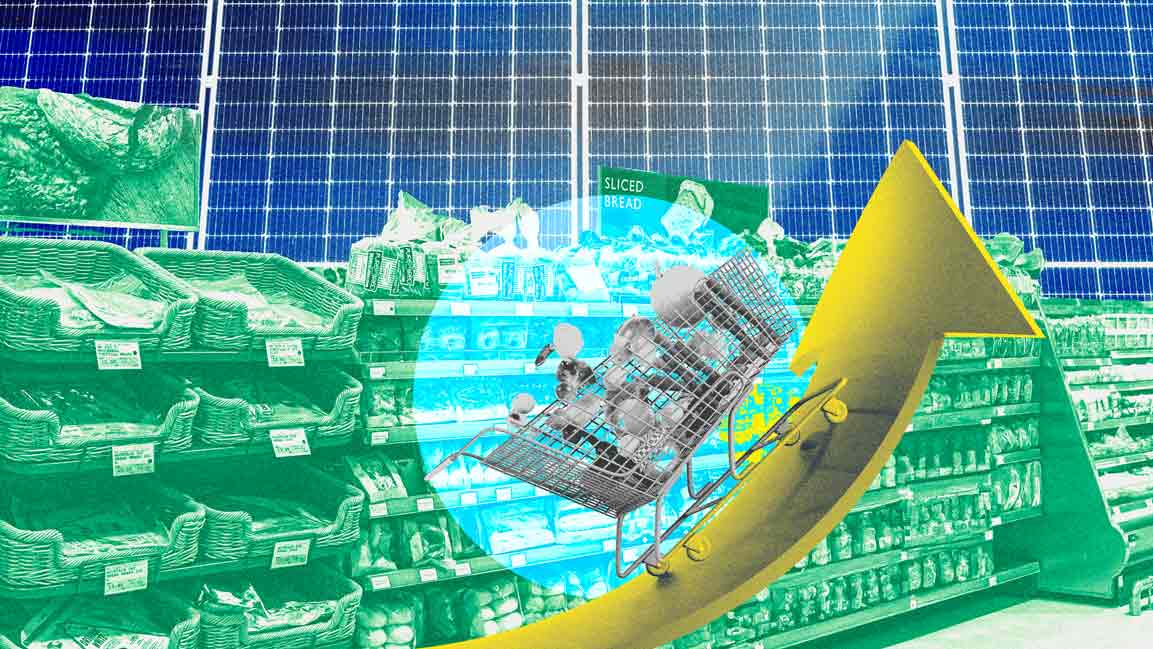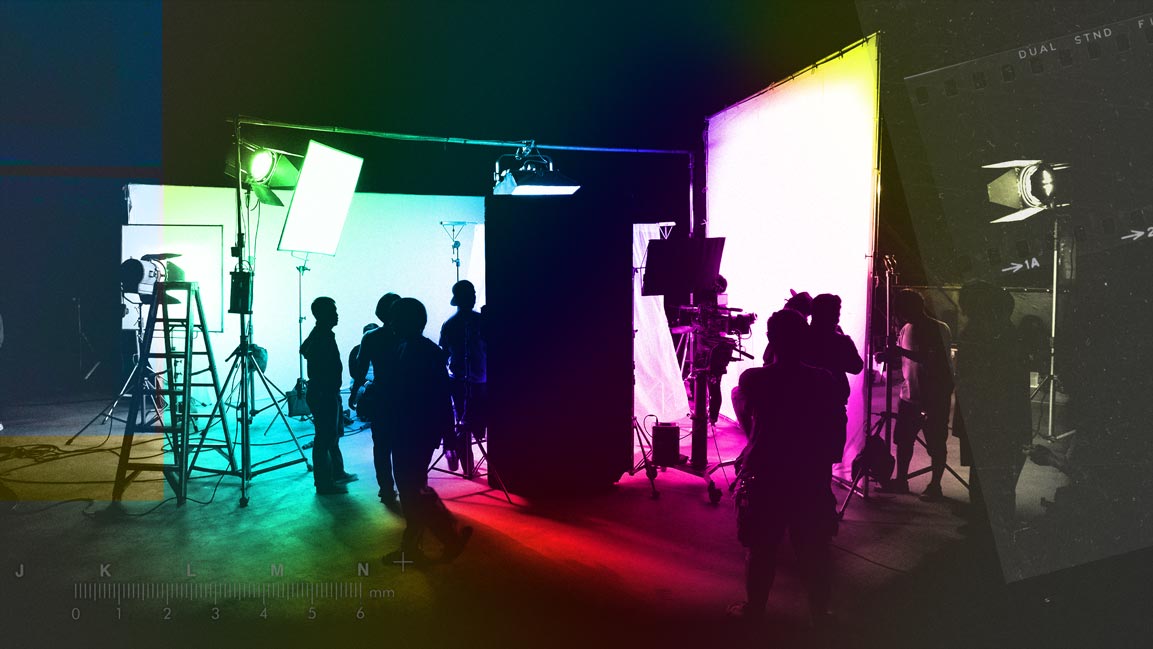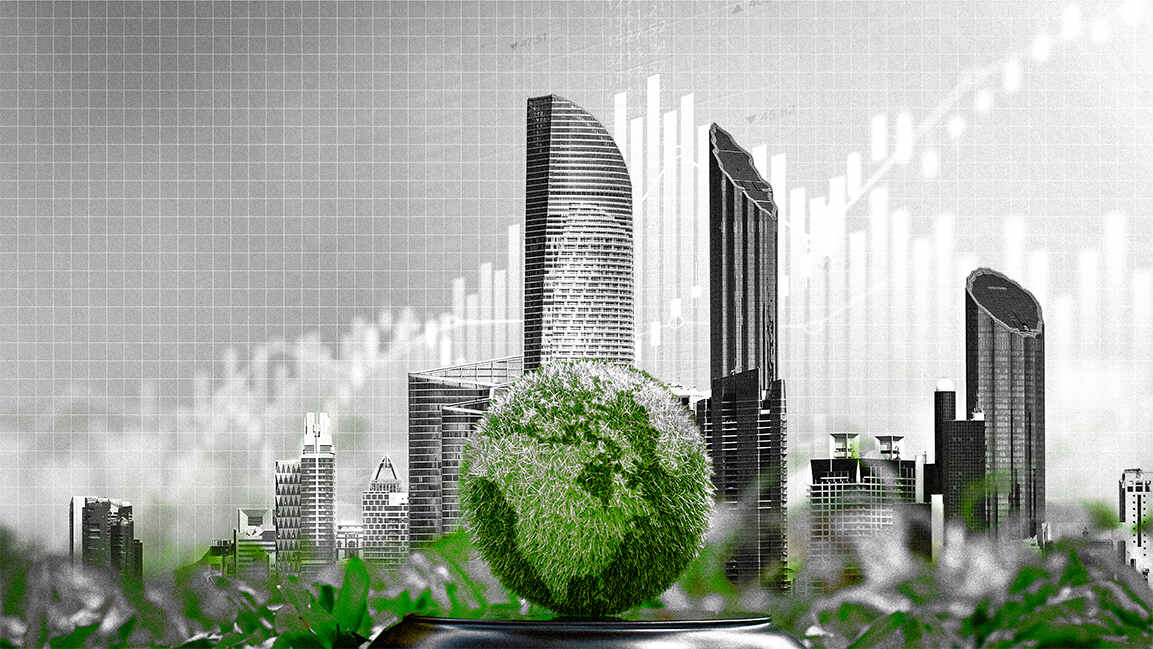- | 1:00 pm
Sustainable manufacturing is critical for the world. And this company might have the solution
Saudi PIF-backed Alat gives Saudi Arabia’s manufacturing push and signs global pacts with Softbank and Carrier. Half a dozen more companies are coming to the kingdom to manufacture
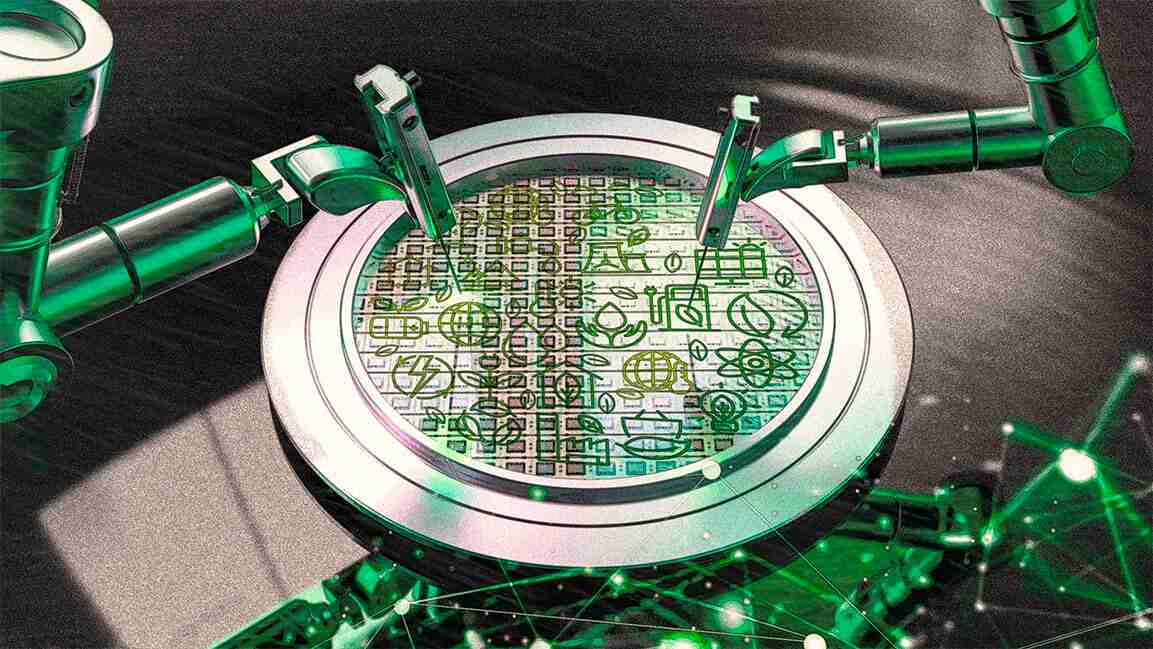
Saudi Arabia has stepped on the accelerator to prepare for its next evolution, driven by a new vehicle – Alat. It’s a sustainable technology manufacturing company backed by $100 billion in capital from the Public Investment Fund (PIF) to invest in everything – from electronics and robotics to semiconductors and capital goods. All are done sustainably, powered by clean energy and advanced technologies.
In essence, the bigger aim, as the country plans for the day far in the future when the oil age draws to a close, is to create a complete ecosystem in the kingdom, reduce imports, and increase localization.
Just three weeks into the formation, Alat, one of the most highly anticipated initiatives, announced a string of deals with SoftBank Group, Carrier Corporation, Dahua Technology, and Saudi Technology and Security Comprehensive Control Company (Tahakom) to boost the manufacturing sector in the kingdom.
CARBON-ZERO MANUFACTURING
Under the agreements, Alat will offer sustainable manufacturing to help its partner companies move towards carbon-zero manufacturing.
“These are just the first moves. This year, we will have half a dozen more companies partner with us and come to produce here in Saudi Arabia,” says Nick Reynolds, CMO of Alat. “We are moving very fast.”
For the last year, a special team has been working with an array of experts and advisers, preparing for how to execute it. The idea is to feed expanding local and world markets for these products and sow the seeds of a diversified Saudi economy.
Reynolds adds that building a sustainable manufacturing hub can only be built with a clean slate. “It makes it easier when you do the green master planning from the start. It means green buildings, sustainable energy, best practices, logistics, and supply chain management using AI and advanced technologies, robotics, and putting best minds together to make that happen.”
The aim eventually is to transform the kingdom into a sustainable manufacturing powerhouse.
“Everywhere in the world, there’s legacy manufacturing, old plants, and power generation. But in Saudi Arabia, we are building a sustainable manufacturing hub from the ground up, from a clean slate, without legacy. And that allows us to radically shift and transform electronics and industrial manufacturing and take advantage of all best practices. So that means we will create the lowest carbon footprint plant, a green facility, a green building.”
With the climate crisis, countries worldwide are shifting to renewable power. We’ve approached this tipping point where sustainability is considered a baseline requirement for purchase. Consumers are shifting their spending toward products with ESG-related claims.
POWERED BY CLEAN ENERGY
And companies should prepare now, says Reynolds. “We are part of the solution because the old way of manufacturing is part of the problem of [global warming].”
“Alat will be powered by solar, wind, and green hydrogen, and leverage AI and advances of the 4th Industrial Revolution to ensure we have the lowest carbon footprint.”
The solar tariffs in Saudi Arabia are one of the cheapest in the world, far cheaper than the US, where it is 20 times higher. The kingdom aims to install 27.5 GW of solar capacity by 2030 and add 10 GW of renewable energy by 2027, with solar to account for the lion’s share. Last year, the country announced plans to build the world’s largest single-site solar power plant in Al Shuaibah, Mecca province. The solar power facility is expected to start operations by the end of 2025, with a generation capacity of 2,060 MW.
And Alat aims to make use of the abundant clean energy resources.
“Trillions of dollars are invested in clean energy infrastructure in Saudi Arabia, and we are going to take advantage of that,” he adds.
Alat, which means machines and tools in Arabic, is trying to lure advanced technology companies away from hubs in Asia and Europe by fast-tracking business licenses to manufacture sustainably in the kingdom.
“We can make things, but making it in a sustainable way is the main reason the global companies choose to partner with us,” says Reynolds.
“Imagine building your next facility as a global company, and you are forced to do things most sustainably, just what your customers demand. So what do you do? You partner with Alat in the kingdom, and that’s good for Saudi Arabia and the world,” he adds.
SoftBank will invest as much as $150 million to establish a fully automated manufacturing and engineering hub in Riyadh. The venture will build industrial robots based on intellectual property developed by SoftBank and its affiliates, with the first factory set to open in December.
Its $200 million partnership with Dahua Technology, one of China’s biggest surveillance equipment makers, will manufacture surveillance hardware in Saudi Arabia. The joint venture will also manufacture hardware, such as sensors, used in smart cities.
And Alat and Tahakom will advance smart mobility and intelligent city solutions.
SUPPLYING FOR GIGA PROJECTS
In fact, mega-projects like NEOM and other large-scale transformation plans for Saudi cities are significant opportunities for Alat to manufacture smart electronics and reduce dependence on foreign imports.
“Projects like NEOM and Roshn and other gigaprojects need smart elevators, smart HVACS and air conditioning systems, water systems and smart building technologies that use low-carbon energy. They need the system and technology to build that, and we will be producing products for them and with them. They are customers, and then we will export to the world,” says Reynolds, who previously worked with global tech giants such as Apple and Dell Technologies.
“I think people will be proud to say they are Made in Saudi Arabia.”
Alat would focus on manufacturing products for domestic and international markets within seven business units: advanced industries, semiconductors, smart appliances, health, devices, buildings, and next-generation infrastructure.
“The first products will roll off the line in December. Just 10 months away,” he adds.
It will invest $100 billion in the kingdom by 2030. It will manufacture advanced industrials and electronics in more than 30 product categories, which is expected to contribute $10 billion to non-oil GDP by 2030 and create 39,000 direct jobs. “39000 is not a small number, but we have a plan to achieve this,” he says.
Manufacturing isn’t the only sector in which Alat aims to accrue growing concentrations of economic value and activity. It aims to build R&D centers and innovation labs and build a thriving ecosystem devoted to developing technologies, designs, and energy-efficient systems.
“The unique plan to not only bring intellectual property into the kingdom for manufacturing, but to create it here,” he says.
R&D CENTERS AND INNOVATION LABS
Florida-based intelligent climate and energy solutions company Carrier has agreed to develop a manufacturing and research and development center in the kingdom. The new center aims to decarbonize emissions in buildings and increase their energy efficiency. Dahua will also establish an R&D center in the kingdom.
“We are partnering with the leading innovative companies because they are large, have a brand, and can change customer behavior. And when they manufacture with us, they will bring in their ecosystem, connect us with dozens of suppliers they have for each product,” says Reynolds.
Financial support is crucial, of course, but being backed by PIF, one of the world’s largest sovereign wealth funds, does much more than simply cut a check when it works with its dozens of portfolio companies.
“The partnership with PIF companies is really close, and we have great working relationships with many of them. It gives you a little bit of flavor. It’s a big ecosystem, and we are the machines and tools to make the products for them,” says Reynolds.
Realistically speaking, when can we see Saudi Arabia becoming a global sustainable manufacturing hub?
“We see that happening very soon. We have been planning it for more than a year now, and we have plans to make industrial robots. The first ones will be coming this year in December. We will manufacture other products with other manufacturers in the same time frame,” says Reynolds.
“It took 30 years for China to become a manufacturing powerhouse, 40 years for Japan, and a little less for Korea. We aim to do that in the next six years,” he adds.













